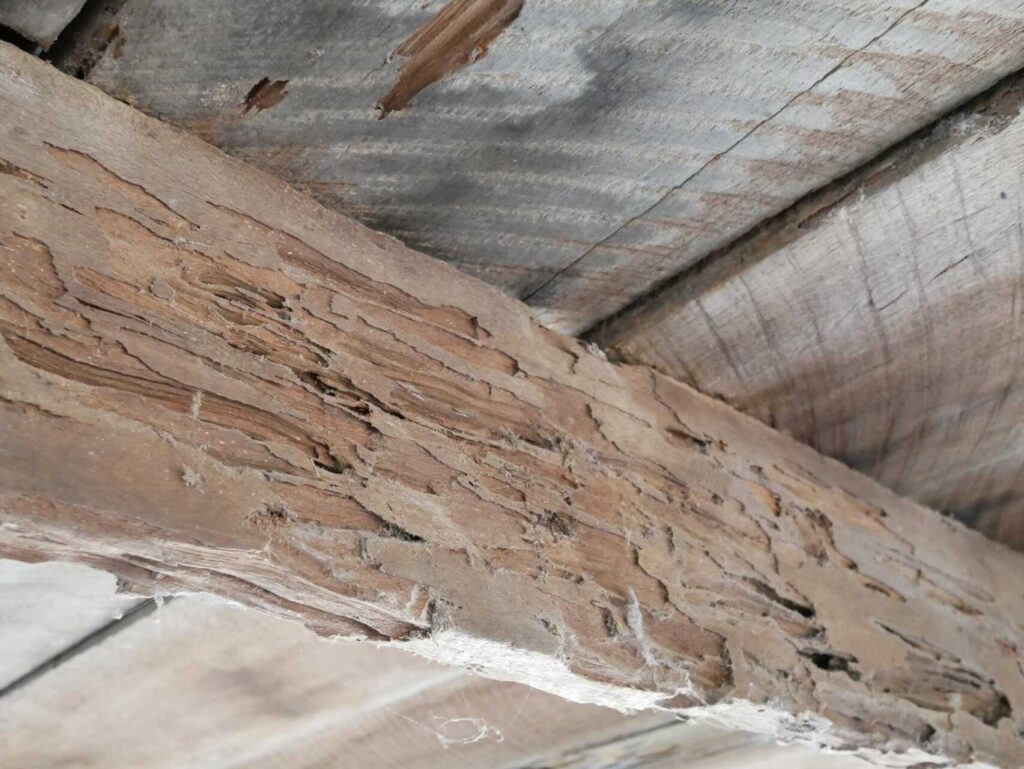
Contents
When it comes to safeguarding your home against the silent threat of termites in Michigan, knowing the top 5 termite control methods is essential. From strategic chemical treatments to innovative baiting systems, each method serves an important purpose in protecting your property. By exploring the effectiveness of wood treatments and soil barriers, you can fortify your defenses against these relentless pests. But what about the fifth method? Discover the all-encompassing approach that ensures your peace of mind when it comes to termite control in Michigan.
Key Takeaways
- Liquid termiticides create impenetrable barriers.
- Baiting systems target and eliminate colonies.
- Wood treatment with borate or orange oil repels termites.
- Soil barriers prevent subterranean termite access.
- Fumigation eradicates entire infestations effectively.
Chemical Treatments
Chemical treatments for termite control in Michigan are a common and effective approach. Liquid insecticides, also known as termiticides, are commonly used for the treatment of termite infestations. The application of these termiticides involves a strategic process to ensure the effective elimination of termites from your property.
When applying liquid insecticides for termite control, it’s vital to follow the manufacturer’s instructions meticulously. The first step is to identify the areas where termites are active. These areas are typically near the foundation of your home or where wood comes into contact with the soil.
Once these areas are identified, the termiticide is applied using specialized equipment to create a barrier that termites can’t pass through. The termiticide application process involves precision and attention to detail.
It’s essential to create a continuous barrier around your property to prevent termites from entering. This barrier effectively eliminates existing termites and protects against future infestations.
Regular inspections and maintenance are necessary to ensure the long-term effectiveness of the termiticide treatment. Monitoring for any signs of termite activity and reapplying the termiticide when needed will help maintain a termite-free environment in your home.
Baiting Systems
Another method that has proven successful in effectively combating termite infestations in Michigan is the use of baiting systems. Baiting systems work by strategically placing monitoring stations around the perimeter of your property. These monitoring stations contain bait that’s appetizing to termites. Once termites are attracted to the bait, they consume it and carry it back to their colonies, effectively spreading the toxic substance throughout the termite population.
The key to the success of baiting systems lies in their ability to target the source of the infestation. By using monitoring stations, you can identify termite activity early on and take action before the infestation spreads further. The baiting system acts as a form of perimeter protection, creating a barrier around your property that termites can’t penetrate without coming into contact with the bait.
Regular monitoring of the baiting stations is essential to ensuring the system’s effectiveness. By checking the stations periodically, you can determine whether there is termite activity and whether the bait needs to be replenished.
This proactive approach helps maintain perimeter protection and keeps your property safe from destructive termite infestations.
Wood Treatment
When considering termite control methods in Michigan, wood treatment emerges as an essential aspect in preventing and eradicating termite infestations effectively. Wood treatment involves applying preventive measures and natural remedies to protect wooden structures from termite damage.
One of the most common wood treatment methods is using borate-based solutions. Borates are natural minerals that are highly effective in repelling and killing termites. These solutions can be applied to wooden structures during construction or renovation to create a barrier against termite infestation.
Another natural remedy for wood treatment is orange oil. Orange oil contains a compound called d-limonene, which is toxic to termites upon contact, making it an environmentally friendly option for termite control. When applied to infested wood, orange oil can penetrate the galleries and tunnels created by termites, effectively eliminating the pests.
Additionally, using pressure-treated wood is a preventive measure that can deter termites. Pressure-treated wood is infused with chemicals that make it resistant to termite infestation, providing long-term protection for structures in Michigan.
Incorporating wood treatment as part of your termite control strategy is essential for maintaining the integrity of your wooden structures and preventing costly damage caused by termite infestations. By utilizing natural remedies and preventive measures, you can effectively safeguard your property against these destructive pests.
Soil Barrier
Implementing a soil barrier is a vital strategy in termite control to protect structures from subterranean termite infestations. Prevention strategies involving soil barriers aim to create a physical barrier that termites can’t easily penetrate, thereby safeguarding buildings from potential damage.
To effectively establish a soil barrier, thorough inspection techniques are important to identify areas where termites may gain access to a structure.
When implementing a soil barrier, the first step is to conduct a detailed inspection of the property to determine potential entry points for termites. Common areas of concern include where the soil meets the foundation, cracks in the foundation, and any wooden structures that come into contact with the ground.
Once these vulnerable spots are identified, a professional can create a barrier by applying termiticides or physical barriers like metal mesh or sand.
Termiticides are often the preferred choice for creating a soil barrier. These chemicals are applied to the soil around the foundation of a building, creating a zone that termites can’t pass through.
Regular inspections and maintenance are essential to ensure the barrier remains intact and effective over time. By combining prevention strategies with diligent inspection techniques, you can fortify your home against subterranean termite infestations.
Fumigation
Fumigation is a highly effective termite control method that involves the use of gas to eradicate termite infestations within a structure. When facing a severe termite problem that has infiltrated hard-to-reach areas, fumigation becomes a valuable solution.
The process typically begins with tenting the infested structure to contain the fumigant gas inside. This gas penetrates deep into the wood, walls, and other hidden spaces where termites may reside, effectively eliminating the entire termite population.
Fumigation safety is paramount during this process. Professionals carefully calculate the amount of fumigant required for the specific structure and ensure proper ventilation post-treatment to make the space safe for re-entry.
Homeowners must adhere to safety protocols and vacate the premises along with any pets, plants, and food items to prevent exposure to the toxic gas.
Fumigation costs can vary depending on the size of the structure and the extent of the infestation. While fumigation may be pricier than some other termite control methods, its thoroughness and effectiveness make it a worthwhile investment in severe infestation scenarios.
Review
When it comes to termite control in Michigan, implementing a combination of chemical treatments, baiting systems, wood treatments, soil barriers, and fumigation is crucial for effectively managing infestations. By utilizing these top 5 methods, you can ensure the long-term protection of your property against destructive termite activity. Remember, just as in nature, where the strongest survive, only the most thorough approach will keep these resilient pests at bay.
Recent Posts
10 Effective DIY Tips for Mosquito Control
Standing water is the silent enemy in your backyard, breeding the very pests you wish
Top Home Pest Prevention Tips for Families
Keeping your home pest-free requires a proactive approach. You’ll want to start by sealing entry
10 Essential Tips for Family Pest Prevention
Keeping your home pest-free is essential for your family’s health and comfort. You might not
